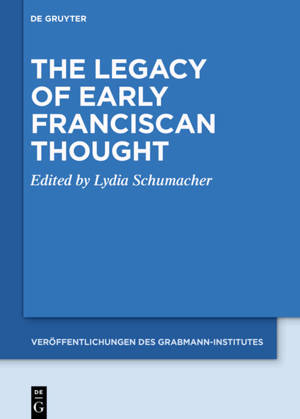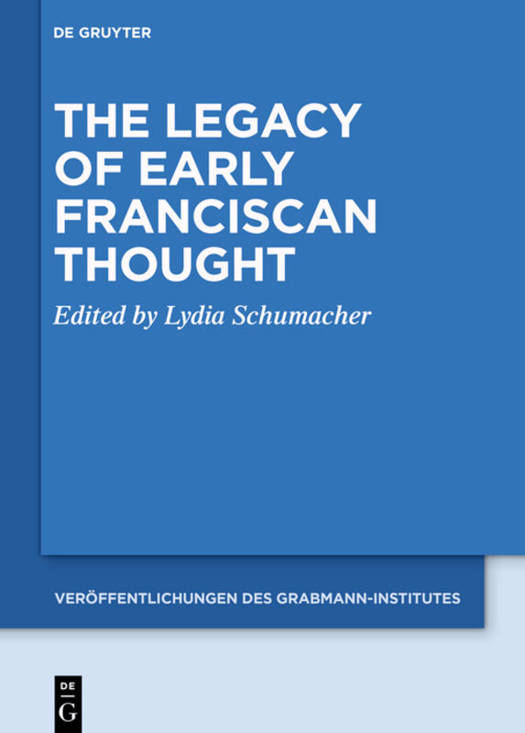
- Afhalen na 1 uur in een winkel met voorraad
- Gratis thuislevering in België vanaf € 30
- Ruim aanbod met 7 miljoen producten
- Afhalen na 1 uur in een winkel met voorraad
- Gratis thuislevering in België vanaf € 30
- Ruim aanbod met 7 miljoen producten
Zoeken
The Legacy of Early Franciscan Thought
€ 233,95
+ 467 punten
Omschrijving
The legacy of late medieval Franciscan thought is uncontested: for generations, the influence of late-13th and 14th century Franciscans on the development of modern thought has been celebrated by some and loathed by others. However, the legacy of early Franciscan thought, as it developed in the first generation of Franciscan thinkers who worked at the recently-founded University of Paris in the first half of the 13th century, is a virtually foreign concept in the relevant scholarship. The reason for this is that early Franciscans are widely regarded as mere codifiers and perpetrators of the earlier medieval, largely Augustinian, tradition, from which later Franciscans supposedly departed. In this study, leading scholars of both periods in the Franciscan intellectual tradition join forces to highlight the continuity between early and late Franciscan thinkers which is often overlooked by those who emphasize their discrepancies in terms of methodology and sources. At the same time, the contributors seek to paint a more nuanced picture of the tradition's legacy to Western thought, highlighting aspects of it that were passed down for generations to follow as well as the extremely different contexts and ends for which originally Franciscan ideas came to be employed in later medieval and modern thought.
Specificaties
Betrokkenen
- Uitgeverij:
Inhoud
- Aantal bladzijden:
- 422
- Taal:
- Engels
- Reeks:
- Reeksnummer:
- nr. 67
Eigenschappen
- Productcode (EAN):
- 9783110682410
- Verschijningsdatum:
- 18/01/2021
- Uitvoering:
- Hardcover
- Formaat:
- Genaaid
- Afmetingen:
- 175 mm x 241 mm
- Gewicht:
- 898 g

Alleen bij Standaard Boekhandel
+ 467 punten op je klantenkaart van Standaard Boekhandel
Beoordelingen
We publiceren alleen reviews die voldoen aan de voorwaarden voor reviews. Bekijk onze voorwaarden voor reviews.






